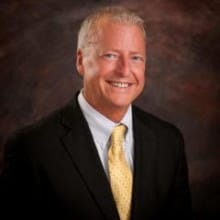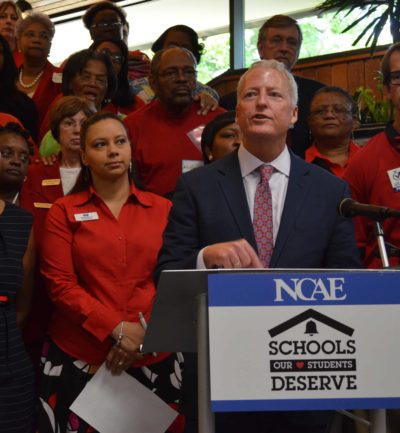I have been a public school educator for more than 30 years, with the last 22 in Guilford County. I grew up and started my career in West Virginia, the location of the most significant educator work action in recent memory. In North Carolina, our public school educators have faced a lot of the similar challenges with the same integrity and grit.
It very much reminds me of the lessons I learned growing up in West Virginia. My dad worked the coal mines and my mom was a teacher assistant. They grew up without running water and electricity. My parents didn’t have a lot of means, but they had a passion and a belief in public education and the resiliency to make a life for our family which is why I was the first to graduate college.
We have seen tremendous changes in America when it comes to access to education, health care, clean water, and so many other things, but still have a long way to go. As a coal miner and educator, my parents saw first hand the benefit of collective actions and movements of labor unions. The results were things like social security, modest benefits, and weekends—and not working until you drop—although some believe that is what educators should do today.
Now we are learning powerful lessons with the current educator movements in Oklahoma, Arizona, and other states. The same sense of urgency we experienced in North Carolina these last five years is spreading across the nation. The dismantling of public schools in our state began in 2011, but it increased exponentially in 2013. Our educators saw attacks on career status, loss of longevity pay, loss of pay for advanced degrees, cuts to classroom resources like teacher assistants, a lack of investment in necessities like textbooks and technology, the draining of public school funds to private school voucher schemes and for-profit charter school managements companies, loss of the Teaching Fellows program, cuts to professional development, elimination of retiree health care for new hires beginning in 2021, and that seems to just touch the tip of the iceberg. We have not even addressed the pay-for-performance debacle for principals and others, the class size chaos, and the purposeful flatlining of pay for experienced educators.
The “enough is enough” mantra that is resonating around the country with students and educators is the same battle cry for educators right here in North Carolina. In West Virginia, it is educators striking for their right to better wages, benefits, and working conditions. For students, it’s lifting voices for safer schools. I’m so proud of both of these movements. What has made them both successful is unity and passion. It is the same recipe educators, parents, and public school advocates used this year to demand the General Assembly to fix the class size chaos that was created by lowering class size without putting more money in for new teachers.
Our leaders would be making a huge mistake to disregard the resiliency and urgency that is taking place with our educators and students. Over the last month we have seen our young students not just be the leaders of tomorrow, but the leaders of today. They are effecting change on the issue of safe schools and common-sense gun control. West Virginia educators are effecting change for better working conditions. Here in North Carolina we are effecting change to fix the class size chaos. The lesson learned is that the shift in leadership is undeniable, and it will only grow and strengthen.
This is the same kind of leadership we expect for elected officials that should be prioritizing our classrooms instead of our boardroom. When North Carolina has the lowest corporate tax rate of any state that implements one, yet we are 43rd in the country in per-pupil spending—our priorities are backwards. We thought our leaders learned a lesson from the Kansas education funding catastrophe. Tax cuts for corporations and millionaires will take about $4.5 billion off the table annually by the year 2020.
Are we really that kind of North Carolina? Is that what we want for our public schools? Enough is enough. North Carolina’s students deserve better than that. Learning from these lessons will lead North Carolina back to public education prominence.



